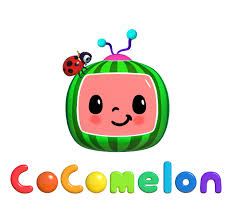Cocomelon: 7 Amazing Facts About the Phenomenal Children’s Brand Shaping Early Education
Introduction:
Cocomelon is a name that every parent, guardian, and caregiver knows. The animated children’s show has captured the hearts of millions of young viewers across the globe. With its colorful animations, catchy songs, and educational content, Cocomelon has become a household name in early childhood entertainment. In this article, we explore the history of Cocomelon, its impact on children’s education, and its significance in modern society. Whether you’re a parent or just curious about the power of early education in entertainment, this article will give you insights into the world of Cocomelon.
The Beginnings and Rise to Fame
Cocomelon originally started as a YouTube channel under the name “ABCkidTV” in 2006. The channel was created by Jay Jeon and his wife, who wanted to create educational content for children. The content primarily consisted of nursery rhymes, simple songs, and engaging visuals.
However, it wasn’t until 2018 that Cocomelon became widely recognized by its current name after it rebranded. With a change in name and an expansion of content, Cocomelon’s popularity soared. The channel’s focus on toddler-friendly music videos, educational themes, and engaging animation resonated with both children and parents. As of 2023, Cocomelon holds the title of the most-subscribed YouTube channel, surpassing other popular content creators.
Cocomelon quickly adapted to different platforms and eventually expanded into Netflix, where it reached even more audiences worldwide. The show is currently available in multiple languages, making it accessible to a global audience of young learners.
Daily Life Viewer: Learning Through Music and Animation
Cocomelon has a unique way of engaging its young audience through music, animation, and colorful characters. Here’s a glimpse of how a typical viewer interacts with Cocomelon:
- Educational Songs: At the heart of Cocomelon’s success are its catchy educational songs. The show covers a wide range of topics that help toddlers and preschoolers learn essential skills, such as numbers, colors, shapes, and manners. The repetition of these songs makes it easier for young children to remember and apply them in their daily lives.
- Interactive Content: Cocomelon also includes interactive elements that engage young viewers. Whether it’s through simple “sing along” moments or asking questions to the audience, the content invites children to actively participate. This interactive approach helps keep children engaged while reinforcing the lessons being taught.
- Colorful Characters: The main characters of Cocomelon—Baby JJ, his siblings, and parents—are designed with bright colors and appealing traits that children can easily relate to. The characters go through everyday situations, like going to school, eating meals, and playing with friends. This portrayal of normal life helps children feel comfortable and reinforces real-world scenarios.
- Safe and Family-Friendly Content: One of the reasons why parents trust Cocomelon is its commitment to providing safe, family-friendly content. The episodes are free from inappropriate themes and are designed to be wholesome, educational, and entertaining. Parents can feel at ease knowing that the content aligns with their values.
Impact on Children’s Education
Cocomelon has transformed how young children engage with educational content. Here are some ways it has positively impacted early childhood learning:
- Promoting Early Learning: Cocomelon introduces essential learning concepts like the alphabet, counting, and social skills at an age-appropriate level. These early learning foundations play a crucial role in preparing children for school and helping them develop cognitive skills.
- Fostering Language Development: Through its catchy songs, Cocomelon has been credited with helping children develop language skills. The repetition of words and phrases in its songs allows children to build their vocabulary, improve their pronunciation, and practice language patterns.
- Teaching Emotional Intelligence: Cocomelon also teaches children about emotions, helping them understand how to express feelings like happiness, sadness, and frustration. By showing characters dealing with various emotions, the show helps children recognize and manage their feelings in a safe and supportive environment.
- Encouraging Positive Behaviors: The show often includes themes of kindness, sharing, and helping others. These positive messages are woven into the storytelling, encouraging young viewers to adopt healthy habits and respectful behavior toward others.
Significance and Cultural Impact
- Revolutionizing Early Childhood Entertainment: Cocomelon has redefined what it means to create educational entertainment for young children. It has set a new standard for content that blends education and entertainment in a way that appeals to both children and parents.
- Global Reach and Language Accessibility: With its vast number of international viewers, Cocomelon is breaking cultural boundaries and making education accessible worldwide. The show’s availability in multiple languages makes it easy for children from various cultural backgrounds to engage with its educational content.
- A Trusted Brand in Early Education: Parents increasingly trust Cocomelon as a source of quality educational content. With its focus on early learning, emotional growth, and positive behavior, Cocomelon has become a staple for families looking to support their children’s development during their formative years.
FAQs
Q: When was founded?
It was originally founded in 2006 as ABCkidTV before being rebranded to Cocomelon in 2018.
Q: Why is so popular?
It’s success can be attributed to its engaging and educational content, catchy music, relatable characters, and commitment to delivering safe, family-friendly entertainment.
Q: What is the educational focus?
It teaches early childhood concepts like numbers, letters, colors, shapes, and social skills through catchy songs and animated characters. It also helps promote language development and emotional intelligence in children.
Q: Is available in multiple languages?
Yes, It is available in several languages, including Spanish, French, Portuguese, and many more, making it accessible to a global audience.
Conclusion:
It has made a monumental impact on children’s entertainment, combining education, fun, and safety into one package. Its approach to early childhood education through music, animation, and positive reinforcement has made it one of the most trusted and beloved brands for young children and their families. By teaching essential life skills, promoting emotional intelligence, and encouraging kindness, It continues to play a key role in shaping the next generation of learners. As it continues to grow its influence globally, It’s legacy will undoubtedly live on in the hearts and minds of children worldwide.










